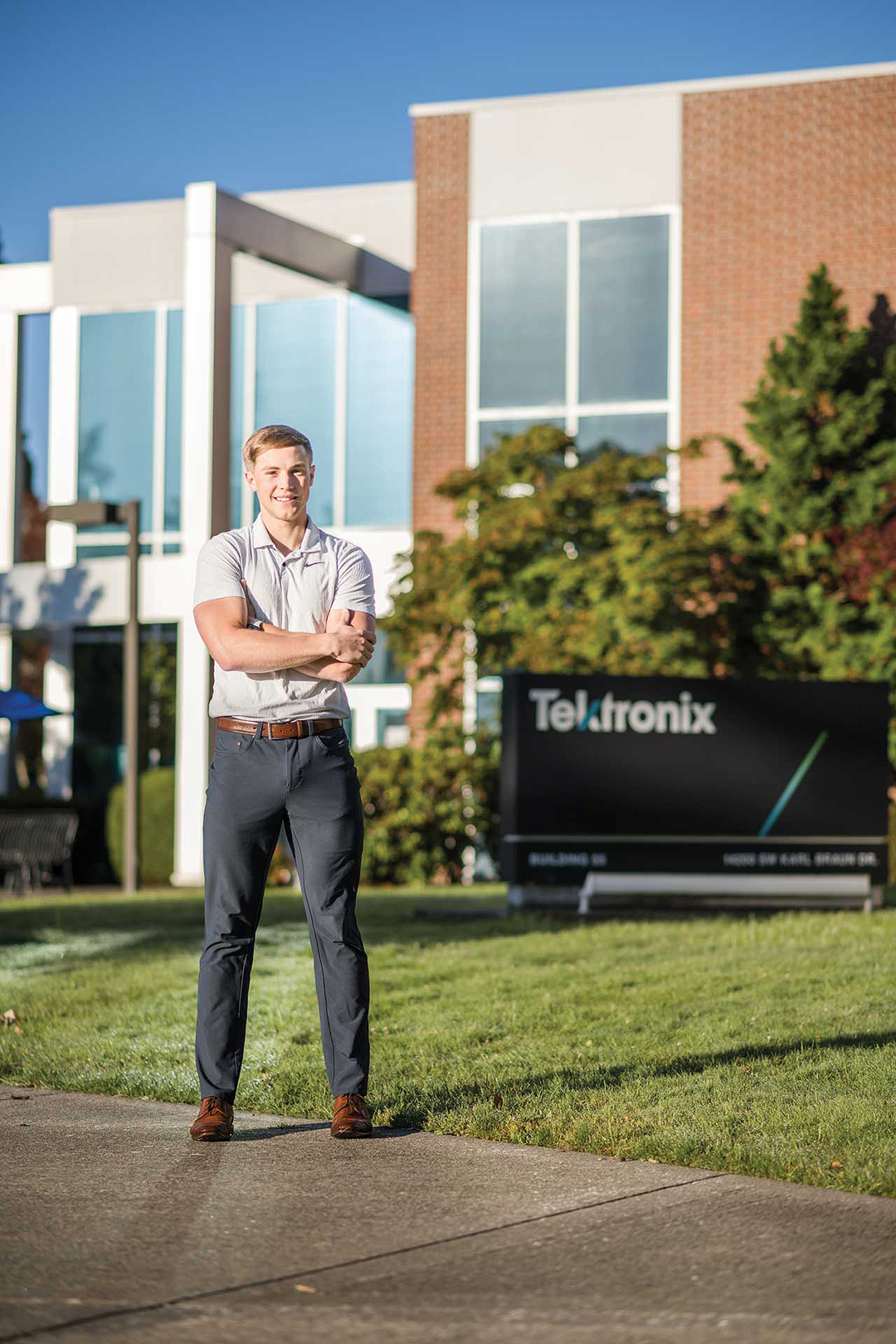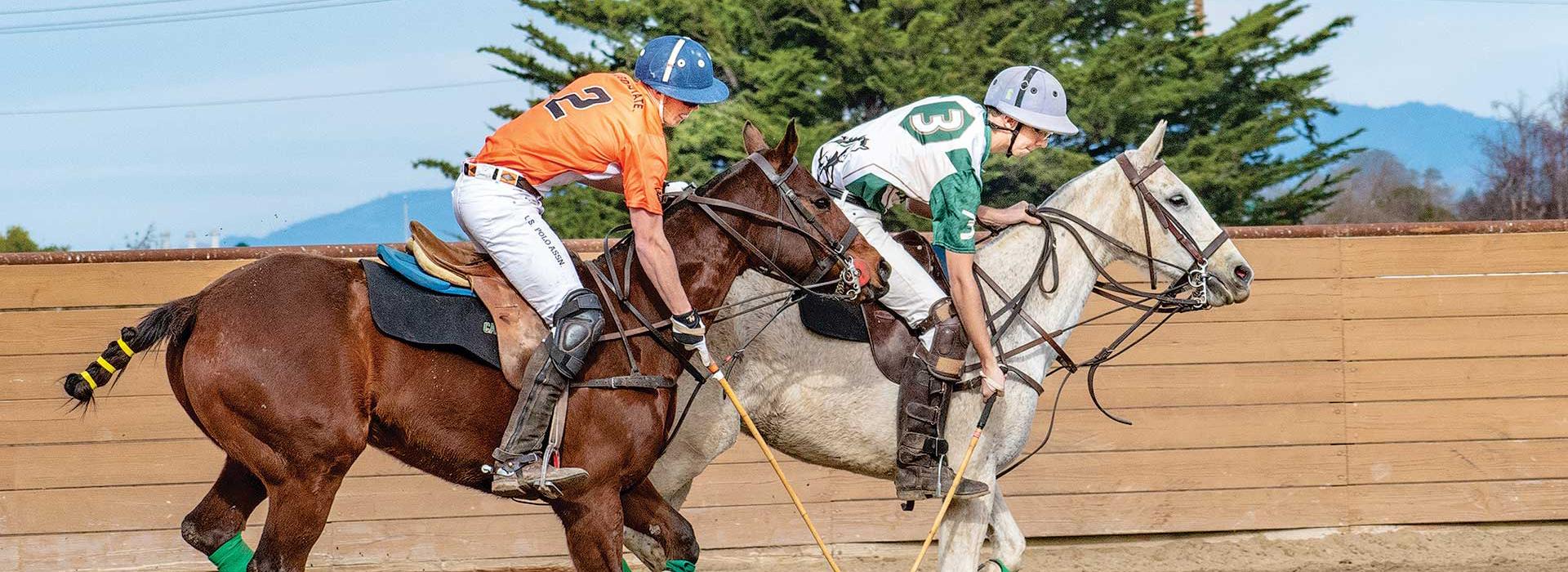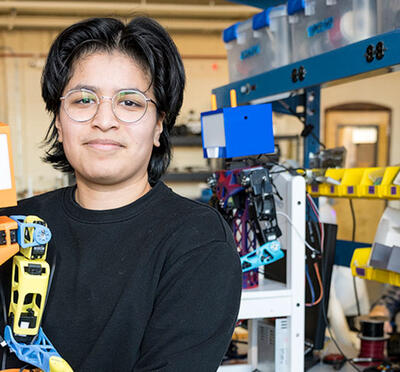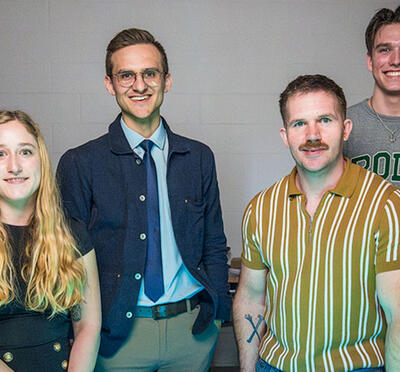Wyatt Weaver started down several academic paths before he found the one that took him where he needed to go.
“I explored architecture, energy systems engineering, and civil engineering before ultimately deciding on mechanical engineering,” said Weaver. “It was a roundabout journey, and I’m surprised I didn't discover my true passion sooner.”
Weaver earned his bachelor’s degree in mechanical engineering (with an aerospace engineering minor) in 2021. Soon after, he joined Tektronix Component Solutions as a mechanical design engineer. The Beaverton-based company designs, assembles, and tests microelectronic equipment for medical, military, aerospace, and high-speed communications applications. Weaver works on the hardware design team, which designs and develops components used in Tektronix’s high-performance oscilloscopes.
He quickly built a solid record of accomplishments, including four trade secrets involving innovative design solutions that increased the company’s competitive edge. One was deemed worthy of a patent application, which is on file and under review by U.S. and European patent offices. He also received the company’s President’s Award, which “recognizes recent graduates who clearly stand out among their peers with significant demonstrated achievement or technical leadership.”
Engineering Curriculum, Clubs, and Internships

According to Weaver, the College of Engineering’s rigorous curriculum provided him a solid footing for building a career. But the new experiences he accumulated by venturing outside of the classroom proved equally important.
“The curriculum gave me everything I needed in my metaphorical tool belt to succeed in engineering at a high technical level,” Weaver said. “But soft skills like communication and interpersonal abilities that I developed through various activities like clubs and internships have helped shape me into a well-rounded individual and engineer. Had I attended a school where academics was my sole focus, I don’t believe I would be as prepared to handle the roles and responsibilities that my job demands.”
Most prominent among those pursuits were two six-month internships, the first with Genentech and the second with Tektronix, which led to his full-time position with the company.
Engineering Student Organizations
He jumped into student organizations as well. While attending Linn-Benton Community College before transferring to Oregon State, Weaver was a member of the Underwater Remotely Operated Vehicles Team. The collaborative endeavor gave him the satisfaction of translating his academic knowledge into working applications. Once at Oregon State, he joined the Mars Rover Team within the Robotics Club, where he and his peers developed, built, and tested a remotely operated vehicle that carried a suite of sensors designed to search for signs of life. The instruments included a soil collection system, a mass spectrometer, and a motorized brush, to name a few.
Weaver also served as an undergraduate research assistant in the Dynamic Robotics and Artificial Intelligence Laboratory, the birthplace of Cassie the robot. His team was tasked with designing, prototyping, and testing new iterations of Cassie’s feet.
“I was always seeking new challenges to grow as an engineer and explore beyond classroom principles and theories,” he said.
To differentiate himself during his future job searches, Weaver created an engineering portfolio, which blossomed into a comprehensive record of his accomplishments, contributions, and activities.
“I’ve had interviews where individuals make it a point to comment on how nice it was to see my project and career experience through an organized digital portfolio,” he said.
Developing Skills Beyond Technical Engineering
Weaver even played on Oregon State’s varsity polo team for more than three years. Before attending college, none of the three-man team had ever played the game, yet they earned a spot at the 2020 National Intercollegiate Championships. The season, however, was cut short by COVID-19, and the competition was canceled.
On top of all that, Weaver has a side gig called Atom Engineering, where he shares tips, guidance, and advice related to engineering, design, and 3D printing with students, hobbyists, and other engineering enthusiasts, including many who are in the early stages of their engineering careers.
“It’s a creative outlet for me,” Weaver said. “My mission is to teach others about engineering, design, and coding by sharing the lessons and skills I’ve learned.”
Weaver recently received his professional engineering license for the state of Oregon, meeting yet another of his career goals.
“This is just another testament to the quality education and preparation that Oregon State offers its students,” he said. “The university gave me numerous opportunities to develop skills beyond just technical engineering. For instance, honing my communication skills has enabled me to convey ideas clearly and concisely to various audiences, which has been crucial in achieving my goals. I believe that reaching some of my early career milestones has been directly linked to the strong foundation that Oregon State provided.”



